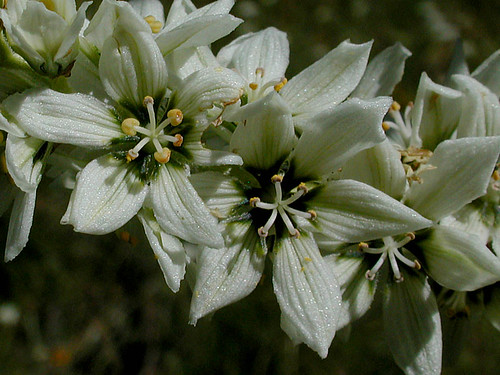Cyclops: I am Undone
 There are few creatures of myth that maintain man's rapt attention as well as the mighty cyclops of ancient Greece. Could it be possible that the true inspiration for such an alien creature be rooted in earthly reality?
There are few creatures of myth that maintain man's rapt attention as well as the mighty cyclops of ancient Greece. Could it be possible that the true inspiration for such an alien creature be rooted in earthly reality?
A mother in India gave birth to a one-eyed child. It is believed the deformation is caused by Cyclopamine, a derivitive of Veratrum californicum. Welcome to the wonderful world of teratogenesis!
Historically there are two versions of the monster. The first are Theogony's Cyclopes, three primordial sons of Uranus and Gaia, the earthly creator gods. They forged and bestowed the almighty lightning bolts utilized by Zeus, Perseus' helmet, Poseidon's trident, and Artemis' bow and arrows. As the brothers of the Hecatonchires (literally "the hundred-handed") they most likely only represented metaphoric blacksmiths, one eye being invisible due to the patch often worn by metalworkers of the period for protection from flying sparks.
Alternatively there is the Cyclops of Homer's Odyssey, a one-eyed creature known as Polyphemus that inhabited an island somewhere in the Mediterranean. A flock of sheep are pivotal to the story and in the end the Cyclops' eye is gouged out and he is left by Odysseus and the remaining party to die. Could it be that this supposed son of Poseidon was in fact a teratogenic mishap that made his way into history?
Veratrum album is a cosmopolitan plant known to many European regions and its medicinal properties were utilized despite its paralyzing neurotoxic effect. Homer's island of the cyclops is generally believed to be Sicily, and it may have been teeming with the plant, nearly indistiguishable from its American cousin. Perhaps a Sicilian woman used a Veratrum preparation and birthed what became the Cyclops monster of myth.
I must forewarn that ingestion of any amount of Veratrum will result in paralysis, unconsciousness, then death. For all your teratogenic needs please stick with Accutane, widely available on American and International pharmacy shelves.

No comments:
Post a Comment